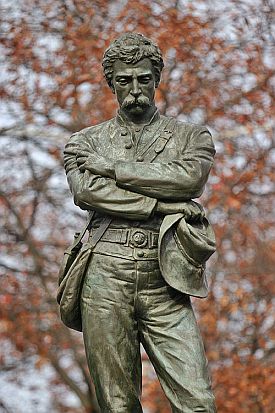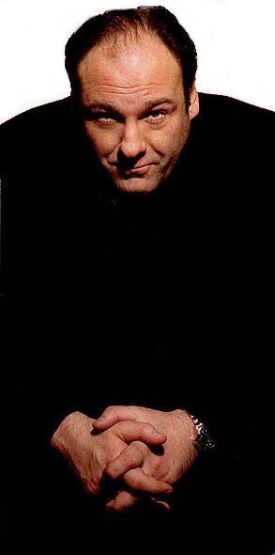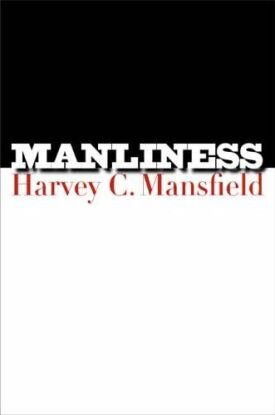Don’t Change ‘Don’t Ask, Don’t Tell’
Reporting on the prospective dismissal from the Air Force of a decorated combat veteran, Lt. Col. Victor Fehrenbach, because he had been identified by somebody else as gay, The Washington Post recently wrote as follows:
After investigating, the Air Force charged him last September with damaging its good order and discipline. The ‘don’t ask, don’t tell’ law, passed by Congress in 1993, prohibits gay, lesbian and bisexual individuals from serving openly in the U.S. armed forces.
This is a common mistake. Actually, there is no “don’t ask, don’t tell law.” The law passed by Congress in 1993 (USC Section 654, Title 10) says that “The presence in the armed forces of persons who demonstrate a propensity or intent to engage in homosexual acts would create an unacceptable risk to the high standards of morale, good order and discipline, and unit cohesion that are the essence of military capability.”
“Don’t ask, don’t tell” is of course the name given to the executive order by Bill Clinton which was designed at once to implement and to circumvent this law. That is presumably why, as the Post notes, President Obama thinks any change “should be done legislatively,” since an executive order from him would be in defiance of the law as written by Congress. Prospects for such legislation are increasing. Senate Majority Leader Harry Reid has asked the president and Secretary of Defense Robert Gates to “bring to Congress your recommendaitons” for changing “Don’t ask, don’t tell.” There is a legislative effort now in House committee, HR 1283, originally sponsored by Ellen Tauscher (D-CA) and now by Rush Holt (D-NJ), that is likely to come up for debate this autumn, but it is doubtful, to say the least, whether “debate” is the right word. The Joint Chiefs of Staff have just published an essay in their quarterly journal (winner of the “2009 Secretary of Defense National Security Essay Competition”), which explicitly compares the end of “Don’t ask, don’t tell” to the civil-rights struggle to racially integrate the armed forces. And what debate can there be between right and wrong?
“Don’t ask, don’t tell,” should be regarded as a tribute to our national talent for hypocrisy. Yes, President Clinton was prepared to agree, homosexual acts might be a risk to the high standards of morale, good order and discipline, and unit cohesion, but if nobody knew about them, then what harm could they do? It sounds like Bill, doesn’t it? But, then, nobody since has thought up a better way of coping with this thorny problem. The left have nothing better to offer than riding roughshod over the opinions of the majority of servicemen — 58 per cent in the latest Military Times poll — and repealing the law. The same poll found that 10 per cent of respondents would leave the service if gays were allowed openly to serve and another 14 per cent would consider leaving. We have at least to take seriously the possibility that this would be the price of treating military service as a human right.
This it clearly cannot be. There are all kinds of people — the very young and the very old, the sick or disabled, violent criminals or, in combat roles, women — whom we regard as unfit to be soldiers. The fact that open homosexuals are also excluded cannot by itself be considered an injustice. The mere assumption that it is may be related to the fact that the advocates of integrating gay soldiers, sailors, airmen and marines into the armed forces so often speak, mistakenly, about the “repeal” of the don’t-ask-don’t-tell policy — as if, like water-boarding, it were a simple matter of the presidential will to discontinue a practice that the “rights” lobby find abhorrent. It’s an assumption that so often seems to go with the moralized politics of the Age of Obama.
The moralization owes something to President Obama’s style of oratory, which has a regrettable tendency towards mere happy-talk. Thus he tells us that we don’t have to choose between our ideals and our security or between jobs and the environment, or between universal healthcare and a manageable deficit. These are supposedly “false choices.” A big part of this new moralism has to do with the easy assumptions of the popular and media cultures that a whole range of issues, from gay marriage to global warming to Guantánamo are morally perspicuous, and that those on the wrong side of them must be supposed for that reason alone to be corrupt or bigoted.
Apparently, when you sign up to the “progressive” agenda, you get a whole outfit of undoubted moral certainties that would make the allegedly simplistic George W. Bush green with envy.
Such certainty seems to be infectious too. As Sam Schulman wrote in these pages a few weeks ago,
There is a new consensus on gay marriage: not on whether it should be legalized but about the motives of those of us who oppose it. All agree that any and all opposition to gay marriage is explained either by biblical literalism or anti- homosexual bigotry. This consensus is brilliantly constructed to be so unflattering to those of us who will vote against gay marriage — if we are allowed to do so — that even biblical literalists and bigots are scrambling out of the trenches and throwing down their weapons.
Recent opinion polls show that this is even more true of the opposition to “Don’t ask, don’t tell,” which now seems to claim majorities among Republicans and regular churchgoers, for example, if not servicemen and women themselves. I suspect these liberalizers have been persuaded that there really is no argument to be made on the other side, which is also what allows the rhetorical shock troops of the left to apply the self-discrediting word “bigotry” to those who are not so persuaded. This is the way our national conversation takes place now. Instead of serious problems on which men and women of good will may differ, all that remains on issue after issue, from global warming to gay marriage to health care is a crude moral melodrama pitting enlightened and civilized adherents of the media consensus against bigots and reactionaries.
Once so identified, one is presumed in advance to have no rational case to make but only a knee-jerk reaction against “change” — that quality which, divorced from any substance, took on mystical properties during the late presidential campaign. We have the President’s own word, at least, that the change he intended included allowing gay servicemen to serve openly, even where once this was thought to be prejudicial to “good order and discipline.” Maybe good order and discipline are themselves now to be thought the concerns only of “bigots.”
Yet if reason were to be re-admitted to the debate, it occurs to me that we may find something in the history of military honor to justify the principle now enshrined in the law decreeing that “homosexuality is incompatible with military service.” We know that soldiering — I mean not training or support or peacekeeping or any of the myriad of other things soldiers do but facing enemy bullets — is inextricably bound up with ideas of masculinity. We also know that most heterosexual males’ ideas of masculinity are inextricably bound up with what we now call sexual orientation. In other words, “being a man” typically does mean for soldiers both being brave, stoic etc. and being heterosexual. Another way to put this is to say that honor, which is by the testimony of soldiers throughout the ages of the essence of military service, includes the honor of being known for heterosexuality, and that, for most heterosexual males, shame attends a reputation as much for homosexuality as for weakness or cowardice.
This is not, of course, to say that homosexuals are weak or cowardly — only that the reputation of manliness, which we know to be an important component of military honor, is in practice incompatible with the imputation either of homosexuality or of weakness and cowardice. Now presumably a homosexual argument for the armed forces’ being required to accept gay recruits is that it doesn’t have to mean this, and that this simple reality is merely the product of custom and convention and no essential part of the moral and emotional equipment of men capable of nerving themselves to face combat. Possibly they are right. But what if they are wrong? Is there any way to find out without taking a possibly fatal risk with national security? Are the advocates of gays in the military prepared to say, fiat justitia, ruit caelum? And, if so, do the rest of us, the majority of gays and straights alike who would prefer not to take such a risk with our lives, property and freedom, have any say in the matter? Or are the wishes of this minority of a minority to be paramount? They say they demand the “right” to make the supreme sacrifice for their country, and yet they are unwilling to make the presumably lesser sacrifice of being publicly reticent about their sexual behavior — or the sacrifice of not being in the military. It doesn’t add up, somehow.
In fact, we do not know and we cannot know what our armed forces would be like under such conditions. The advocates of allowing open homosexuals to serve often cite the examples of Israel or Britain, both of which have integrated homosexuals into their military services apparently without incident. But they have done so in circumstances which do not allow for any objective assessment of the success or failure of the experiment. In Israel, all citizens must perform military service, which presumably affords much more scope for diluting the impact, if any, of the presence of homosexuals than would be the case in an all-volunteer army like that in the U.S. In Britain, the change came about in response to an order from the European Court of Human Rights, whose decrees have the force of law. For this reason, it would not be in the interest of any officer who valued his career prospects to notice or to remark upon any problems that the presence of gay soldiers, sailors or airmen might be causing in their armed forces. Nor has the performance of the British army in Iraq or the Royal Navy in the Persian Gulf been such as to render all suspicion of damage to the morale, good order and discipline ridiculous.
Yes Churchill, as First Lord of the Admiralty, once spoke of the traditions of the Navy as being “rum, bum and the lash.” And we do know that there have always been gays in the military — and that, therefore, they have been tolerated on the condition that they have been able to behave with discretion. This is not necessarily an argument for “Don’t ask, don’t tell,” which is an absurd attempt to make official what would be unofficial in any case. But if it is no longer possible to rely on the discretion, the decency and tolerance of the individual soldier, then how much longer can we expect to rely on his courage and readiness to sacrifice himself for the greater good?
In Saving Private Ryan, when the word finally reaches Matt Damon’s eponymous hero that his brothers have all been killed and that he is being withdrawn from his forward position as a precaution against his being killed likewise and so leaving his parents childless, his reply is to take in his combat buddies with a sweeping gesture and say: “These are my brothers.” It is a way of looking at the experience of men in combat that is so familiar as to be almost a cliché. It echoes the words of Shakespeare’s Henry V before the Battle of Agincourt
We few, we happy few, we band of brothers,
For he today that sheds his blood with me
Shall be my brother. Be he ne’er so vile
This day shall gentle his condition.
In order for any military unit to function under extreme conditions, this sense of brotherhood, which is naturally fostered by shared hardships, will always be encouraged by the military culture for the sake of the unit’s combat effectiveness.
Nor is the notion of brotherhood merely metaphorical. There is a kind of blood brotherhood of comrades in arms that should be seen, because it is so often seen by the men themselves, as a species of brotherhood of the blood. Certainly it involves a form of love — in Greek philia — whose strength is essential to the purposes which evoke it. It is striking to me how seldom this love between men in battle is mentioned by the advocates of lifting the ban on open homosexuals’ serving in the armed forces. Characteristically, they argue on the basis of professionalism and the supposed irrelevance of “sexual orientation” to the job of soldiering. But is it irrelevant?
Perhaps even critics of “Don’t ask, don’t tell” have an uneasy sense that they cannot simultaneously say — as much of the commentary about the film Brokeback Mountain seemed to suggest — the homosexual relationship is simply friendship carried to a higher power while at the same time saying, as the advocates for gay marriage do, that it is exactly the same as the erotic love between men and women. Those who are not homosexuals have always resisted any simple equivalence between sexual love and friendship not out of bigotry but at least partly because to grant it would be an abdication of their own right to love. Characteristically, the robust heterosexual, if told that close friendship with another man is only a degree to homosexual relations with him will back off the friendship. He knows, or believes, what it seems probable that the homosexual cannot know or believe, or doesn’t want to know or believe, namely that the two sorts of love are different in kind and not just in degree.
The resistance from military men to the ideas of gays in the military seems to be owing to this perception. In their minds there simply is no continuity between brotherly and erotic love and, indeed, the power of the former would be not just diminished but destroyed by any confusion of the two. When that other kind of love, Greek eros, gets mixed up with the very different kind of love appropriate to siblings or parents and children, we call the result incest, which has been banned, often with extreme prejudice, in almost all cultures known to us. This is because eros is so strong that it corrupts and destroys the other kinds of love which, accordingly, simply cannot co-exist with it. Eros is the grey squirrel, the kudzu, the zebra mussel of emotions: when it moves into an environment, it crowds out all its competitors.
Of course it will now be said by our new breed of political moralizers that I have compared homosexual love to incest, thus identifying myself — assuming for the moment that I had not done so before in any case — as a bigot. I have done no such thing. I have said that homosexual love, like heterosexual love, must admit of certain human relationships, based on other, non-sexual kinds of love, where it is wrong and inappropriate because its presence there would corrupt and destroy those more delicate types of love. I merely ask those who wish to do away with the prohibition of open homosexuality in the armed services to consider that the more than 1100 flag and general officers who recently declared their support for the existing law were motivated, as they claim, by genuine concern for national security and not by bigotry. Wouldn’t any refusal to do so be tantamount to bigotry itself?
[Top][Back]
Discover more from James Bowman
Subscribe to get the latest posts to your email.



